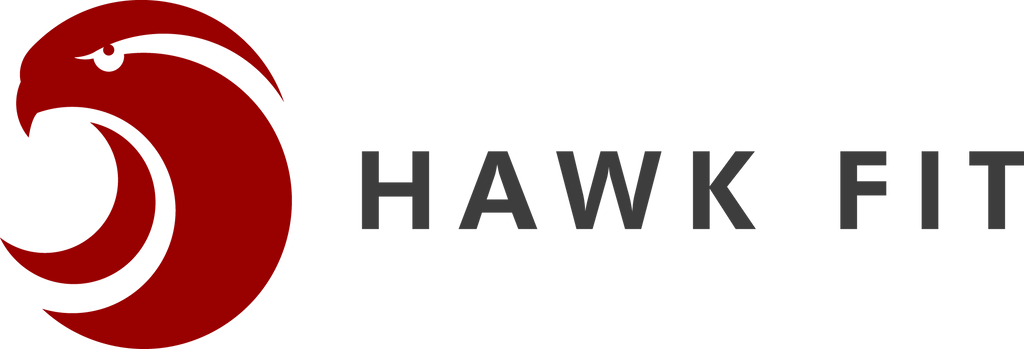"Look inside yourself Simba, you are more than what you have become- remember who you are" - Mufasa, Pride Rock

What has it’s finger in every physiological process that occurs in the human body and is the cause of so many dis-regulations, system imbalances, and declines in health?
Stress.

General Adaptation Syndrome (GAS) states that an event that threatens an organism’s well being, a stressor, leads to a three-stage bodily response. At the most basic level there’s 3 stages of stress– the alarm stage, the resistance stage, and the exhaustion stage. Stress is a biological response that occurs in our body that has kept us alive for the last century, or so.
“Has? But I’m still alive?”
Precisely, but who’s to say that it isn’t adding to your slow decay? This is interesting because nothing about the stress response has changed. It works the same way it did thousands of years ago.
So what’s changed?
1: Alarm
Upon perceiving a stressor, the body reacts with a “fight-or-flight” response and the sympathetic nervous system is stimulated as the body’s resources are mobilized to meet the threat or danger.
Historically, when something happened that put our life in danger, we needed to either run away from a Lion, or Dinosaur, or we needed to fight a Gorilla to survive. The stress response is pretty incredible for helping us out in these types of instances- hence why it’s nick name is ‘fight or flight’ response, this is what we would call your Sympathetic nervous system. At the alarm stage the brain initiates the most immediate response signaling the adrenal glands to release epinephrine and norepinephrine. Then, the hypothalamus and pituitary activate another part of the adrenals, releasing cortisol. This is followed by the nervous system initiating behavioral responses like alertness, focus, reduction of pain receptors, and the inhibition of reproductive behaviors and desires. The sympathetic nervous system then kicks in to increase the heart rate, blood pressure and release fuel to help fight or get out of danger as it redirects blood flow to the heart, muscles and brain, away from the gastrointestinal tract and digestive processes. To accommodate these demands there is a vast increase in energy production and utilization of nutrients and fluids in the body.
The minute our body senses we are in any type of danger, it gets ‘everything’ associated with being in a sympathetic driven state ready just incase we need to fight or run away. You’re probably familiar with this feeling, you know… When you’re running away from a serial killer, or when you’re about to get into a fight, or go on a pretty crazy roller coaster- well maybe not that first one, but you get the idea. The response I’m referring to is predominately due to the stress hormone epinephrine (adrenaline). TL;DR epinephrine communicates with every cell in your body that your life is in danger, as a result, a ton of biochemical reactions begin to occur, hormones and catecholamines begin to elevate very fast to help you survive in that instance- then it settles back down once the stressor disappears.
Once we are out of danger, the stress response settle the parasymathic nervous system also known as the 'rest and digest' state- it works to slow the heart rate down, lower blood pressure, take in more oxygen, allow recovery to occur. In short, it resumes bodily processes that were temporarily put on hold when the sympathetic nervous system was stimulated, such as digestion. During periods of rest, the body can devote energy to processes that are not directly involved with fighting or running away from a Lion.
Stress doesn’t only come in the emotional/psychological form, It also comes in the form of physical pain or over-exertion. When you are training, and training hard, your body doesn’t realize that you’re not in danger, or safe. When you’re over-exerting yourself it sees as- I need to save my life, survival is necessary, I’m not going to let this Lion rip my throat out.
2: Resistance
The body resists and compensates as the parasympathetic nervous system attempts to resume regular physiological functions, but cannot as the body prioritizes resources against the stressor and remains on alert.
The second stage that occurs is the resistance stage, this happens because you’re in the alarm phase way longer than you should have because the stressor didn’t subside. This is because after you got into a fight, you didn’t realize the guy you beat up was part of a gang- now you have to go Bruce Lee and put everyone to sleep. Due to the fact that you kept the adrenaline response running, cortisol now has to show up to the party to back up the elevated adrenaline. Back to our history lesson, cortisol was only needed in times of famine, periods of war, or cataclysmic floods- any other stressor subsided fairly quickly. The deleterious effects of elevated cortisol are designed to help combat starvation due to lack of food to help mitigate the negative effects on your metabolism.
Now let’s go even deeper.
3: Exhaustion
If the stressor or stressors continue to place a demand beyond the body’s capacity, resources become exhausted and the body is susceptible to disease and death.
A bad diet can also trigger the stress response, especially if you’re consistently eating foods that your body doesn’t cope well with and constantly ignore your biofeedback signals. It’s usually near the exhaustion phase where we start to have mucho problem-o’s. If you don’t make it a point to manage different stressors appropriately, then you start to diet and induce a calorie deficit... You’re programming your body to engrain what it knows- I’m stressed the hell out and food is scarce. Do you know how it’s going to react? It’s going to continue to think you’re in danger, thus making ANY efforts to lose fat will become increasingly challenging, as opposed to working with your physiology- you start working against it. This will lead to even more disorder in the body in the form of hormonal imbalances, a decline in overall health, increased risk of cancer, increased exposure to a variety health-related diseases, chronic inflammation in the body, the list is never-ending and if I were to list all the repercussions for mismanagement of stress and chronic calorie deficits/nutrient deficiencies we would be here all day.
“But coach, what’s the solution?”
Now, before you go thinking ALL STRESS IS BAD, light the sage, strike a meditation pose, and start ‘OHMMMing’ your life away we have to come to the understanding that stress itself isn’t inherently bad. It's necessary for things like growth/survival, the body and mind can adapt to stress and grow from it.
If it's the right DOSE, over the right TIME FRAME, you'll recover/adapt to it- and that’s the key, getting it back to baseline and recovering. Humans are good at buffering short term stressors, it's natural from an evolutionary standpoint. This is where the understanding of the philosophy of hermeticism, hormesis, and hormetic stress comes into play- pretty important for helping us understanding homeostasis in the body. What our bodies have trouble with is chronic stress. Chronic stress is caused by multiple stressors. This could be arguments, bills, work, lack of sleep, poor diet, inactivity, technological overload, it could go as far as our own thoughts- combine that with your calorie deficit, high volume programming, and HIIT cardio x5/week and you'll be digging yourself a very deep hole- that you'll eventually have to climb out of. These combine to create a chronically stressed state, which if you can't get back to baseline, then the stress will outpace the adaptation and recovery.
And that usually leads to some form of dis-ease in the body- see what I did there.
From the second we wake, we're being stimulated, carrying out activities that raise our Sympathetic Nervous System, but we rarely do things with the intention of raising our Parasympathetic Nervous System. Just like everything in life, there must be balance for things to work as effectively and efficiently as possible. If you have an overwhelming amount of stress in your personal, work-life, relationships, then you shouldn’t use your training sessions to ADD MORE stress. The good news is, is you can learn to manage the stressors in your life that you can’t eliminate- so you’re don't feel like you're getting chased by a Lion 25/8. It’s important to remember, that if your body is responding in a certain way, it is doing it because it thinks it is the right thing to do. So don’t treat the way it responds, treat the reason why it thinks to respond like that!
There are almost endless reasons why stress management is so crucial when undertaking a physique transformation of ANY kind – whether it’s losing fat, adding muscle, or both.
You therefore MUST eat enough food to let your body know that you are safe. You must manage your stress so when you work out it isn’t feeding your body even more information that it is in danger.
- An hour or two of extra sleep: can sometimes do more good than all the foam rolling and supplements in the world. Your body is the world champion at healing itself; you just have to lie back, close your eyes, and let it do its job.
- Sufficient calories, adequate protein intake, micronutrient-dense food: especially if your form of challenge is calorie-intensive. It’s one thing to be in a calorie deficit, and it’s a completely different thing to be chronically under-nourished state. Remember that calorie restriction is a stressor.
- Manage life stressors: This will help you recover faster from the stressors you choose. What can’t be managed has to be worked out through actives like meditating, journaling, deep breathing, going on walks, etc…
- Stress management techniques: Breathing techniques are a great way to communicate to your body that you are safe. As is stretching and yoga. Meditation. Journaling. All of that ‘fluffy stuff’ lets your body know that it is safe.
Work on managing your stress appropriately, so when you enter a calorie deficit to lose fat – you actually lose fat and when you exercise to put on muscle, your body repairs itself afterward to actually put on muscle. Do what you can to get the most out of your efforts. It doesn’t make sense not to!

